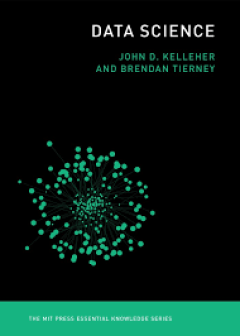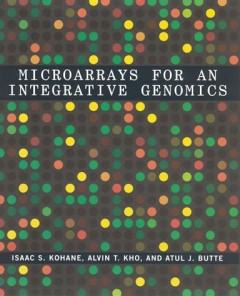Filter by

The Pathway to Publishing: A Guide to Quantitative Writing in the Health Scie…
Scientific writing is a key skill for researchers. Scientific writing develops critical thinking, helps scientists connect their local results with global understanding, and helps scientists identify appropriate next questions to explore. Increased scientific writing capacity within a research group allows more study results to be shared with the practitioner community and policy makers…
- Edition
- -
- ISBN/ISSN
- 9783030981754
- Collation
- XIII, 186
- Series Title
- -
- Call Number
- -

Innovations in Derivatives Markets : Fixed Income Modeling, Valuation Adjustm…
This book presents 20 peer-reviewed chapters on current aspects of derivatives markets and derivative pricing. The contributions, written by leading researchers in the field as well as experienced authors from the financial industry, present the state of the art in: • Modeling counterparty credit risk: credit valuation adjustment, debit valuation adjustment, funding valuation adjustment, a…
- Edition
- -
- ISBN/ISSN
- 978-3-319-33446-2
- Collation
- X, 449
- Series Title
- Springer Proceedings in Mathematics & Statistics (PROMS, volume 165)
- Call Number
- -

Innovations in Quantitative Risk Management : TU München, September 2013
Quantitative models are omnipresent –but often controversially discussed– in todays risk management practice. New regulations, innovative financial products, and advances in valuation techniques provide a continuous flow of challenging problems for financial engineers and risk managers alike. Designing a sound stochastic model requires finding a careful balance between parsimonious mode…
- Edition
- -
- ISBN/ISSN
- 978-3-319-09114-3
- Collation
- XI, 438
- Series Title
- Springer Proceedings in Mathematics & Statistics (PROMS, volume 99)
- Call Number
- -

Migration Research in a Digitized World
This open access book explores implications of the digital revolution for migration scholars’ methodological toolkit. New information and communication technologies hold considerable potential to improve the quality of migration research by originating previously non-viable solutions to a myriad of methodological challenges in this field of study. Combining cutting-edge migration scholarship …
- Edition
- -
- ISBN/ISSN
- 978-3-031-01319-5
- Collation
- -
- Series Title
- -
- Call Number
- -

Data science
A concise introduction to the emerging field of data science, explaining its evolution, relation to machine learning, current uses, data infrastructure issues, and ethical challenges.OCLC-licensed vendor bibliographic record.
- Edition
- -
- ISBN/ISSN
- 9780262347020
- Collation
- 1 online resource (xi, 264 pages) :illustrations.
- Series Title
- -
- Call Number
- -

Numbered lives :life and death in quantum media
A feminist media history of quantification, uncovering the stories behind the tools and technologies we use to count, measure, and weigh our lives and realities. Anglo-American culture has used media to measure and quantify lives for centuries. Historical journal entries map the details of everyday life, while death registers put numbers to life's endings. Today we count our daily steps with fi…
- Edition
- -
- ISBN/ISSN
- 9780262350174
- Collation
- 1 online resource (240 pages).
- Series Title
- -
- Call Number
- -

Microarrays for an Integrative Genomics
Functional genomics--the deconstruction of the genome to determine the biological function of genes and gene interactions--is one of the most fruitful new areas of biology. The growing use of DNA microarrays allows researchers to assess the expression of tens of thousands of genes at a time. This quantitative change has led to qualitative progress in our ability to understand regulatory process…
- Edition
- 1
- ISBN/ISSN
- 9780262277372
- Collation
- -
- Series Title
- -
- Call Number
- -

Enacting Dismal Science New Perspectives on the Performativity of Economics
In this book, sociologists, philosophers, and economists investigate the conceptual issues around the performativity of economics over a variety of disciplinary contexts and provide new case studies illuminating this phenomenon. In featuring the latest contributions to the performativity debate the book revives discussion of the fundamental questions: What precise meaning can we attribute to th…
- Edition
- 1
- ISBN/ISSN
- 978-1-137-48876-3
- Collation
- 5 b/w illustrations
- Series Title
- -
- Call Number
- -

Democratizing our dataa manifesto
Why America's data system is broken, and how to fix it.Why, with data increasingly important, available, valuable and cheap, are the data produced by the American government getting worse and costing more' State and local governments rely on population data from the US Census Bureau; prospective college students and their parents can check data from the National Center for Education Statistics;…
- Edition
- -
- ISBN/ISSN
- 9780262359702
- Collation
- 1 online resource
- Series Title
- -
- Call Number
- -

Data feminism
A new way of thinking about data science and data ethics that is informed by the ideas of intersectional feminism. Today, data science is a form of power. It has been used to expose injustice, improve health outcomes, and topple governments. But it has also been used to discriminate, police, and surveil. This potential for good, on the one hand, and harm, on the other, makes it essential to ask…
- Edition
- -
- ISBN/ISSN
- 9780262358521
- Collation
- 1 online resource (328 pages).
- Series Title
- -
- Call Number
- -
 Computer Science, Information & General Works
Computer Science, Information & General Works  Philosophy & Psychology
Philosophy & Psychology  Religion
Religion  Social Sciences
Social Sciences  Language
Language  Pure Science
Pure Science  Applied Sciences
Applied Sciences  Art & Recreation
Art & Recreation  Literature
Literature  History & Geography
History & Geography